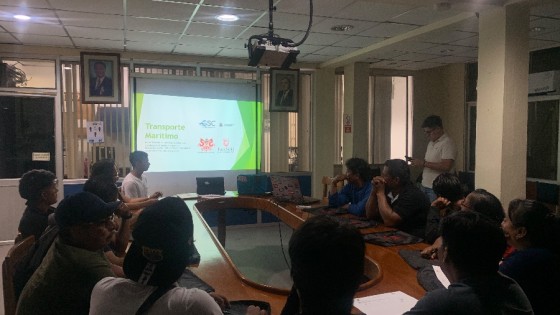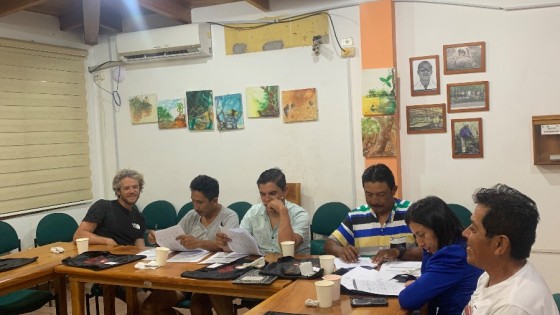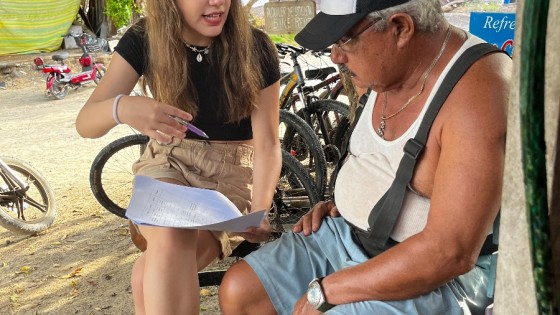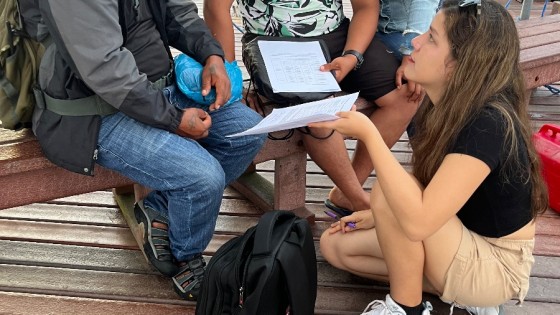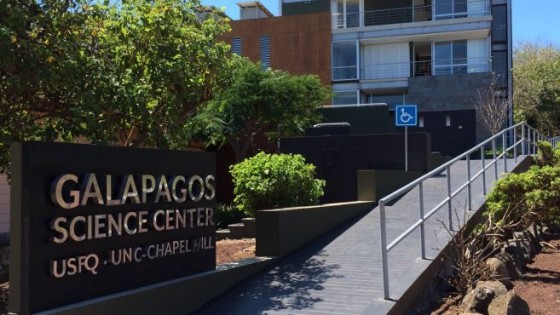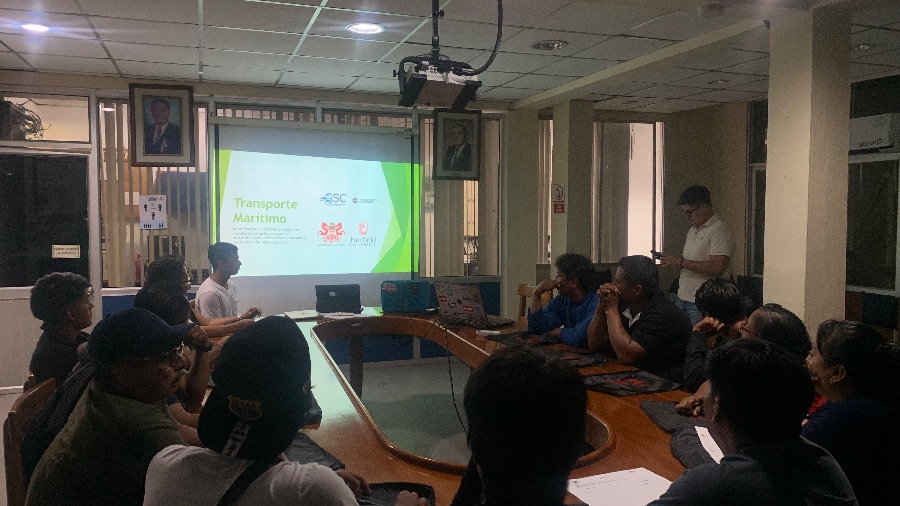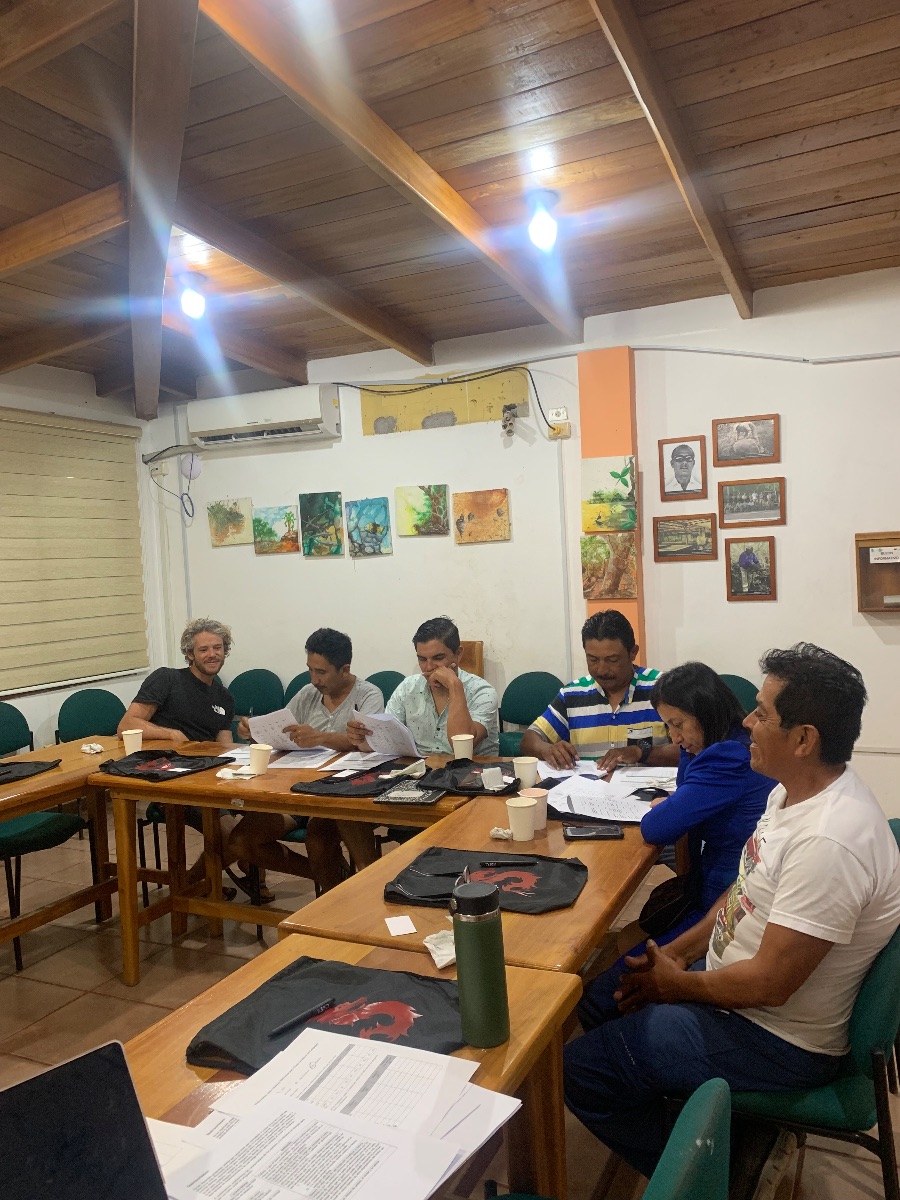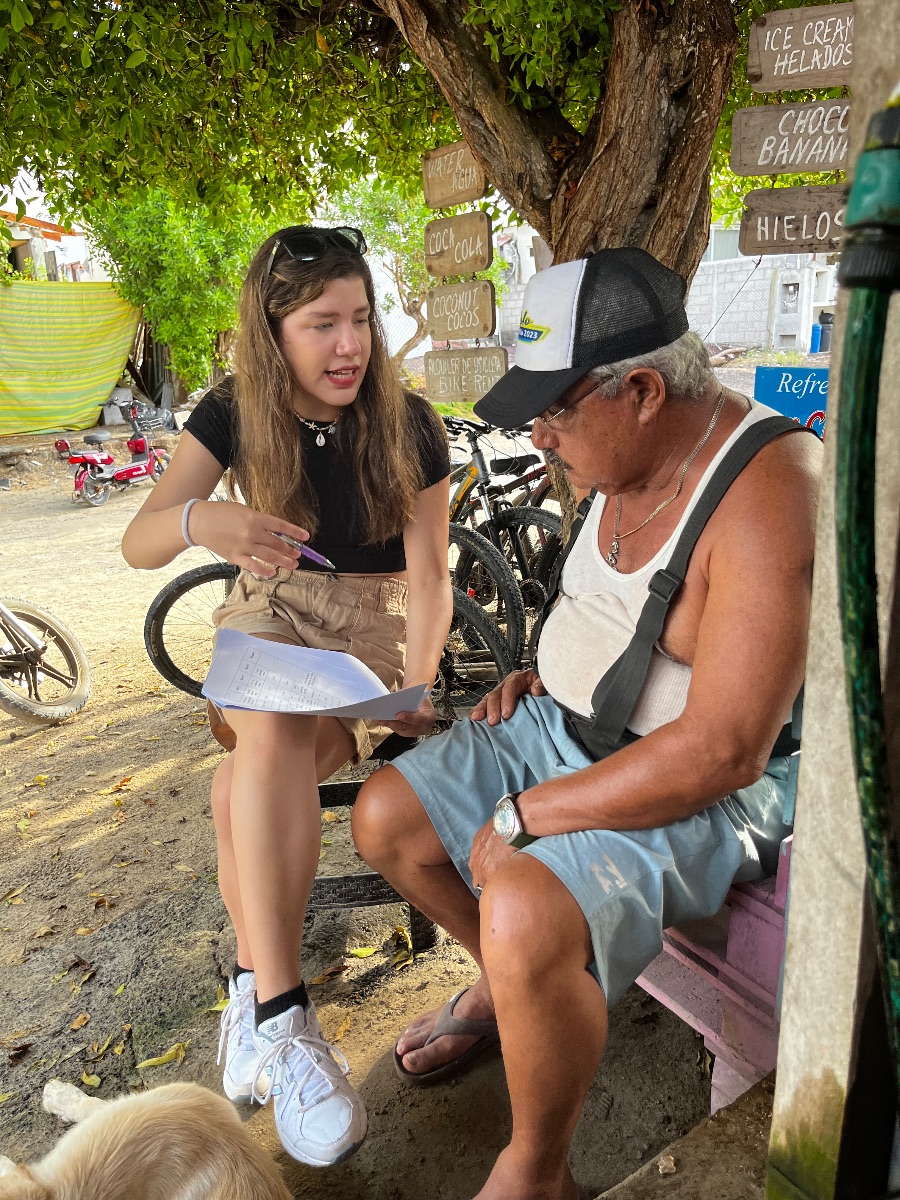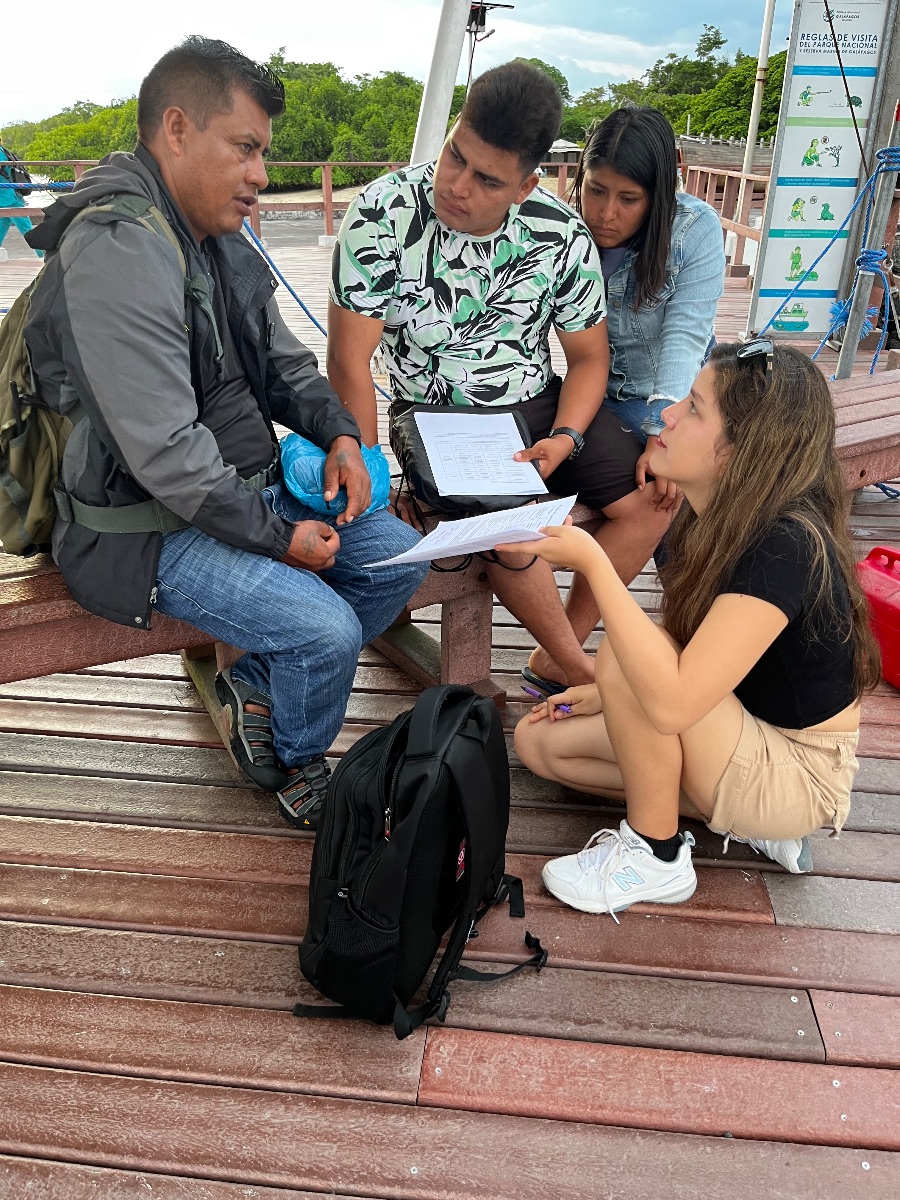Galapagos Atmospheric Emission Model for Educational and Sustainable Decision Purposes
The project will deliver a simulation model software, available online for public access with focus on education and decision-making. The model will be constructed using a System Dynamics approach, a powerful tool for solving complex problems which considers relationships between technical variables (e.g. technology) and soft variables (e.g. behaviour). The model will help define mitigation strategies to and policies to reduce air emissions considering counterintentive effects, delays, among others. This model will become a powerfull tool for decision-making post COVID-19, to help reactivate the economy in the islands and guarantee environment protection. The model will help visualize the short and long-term problem by evaluating and predicting anthropogenic emissions for the main air primary pollutants (NOx, CO, SO2, PM10 and PM2.5) and GHGs (CO2, CH4, N2O) in the main populated islands. The project takes into account a participatory planning that involves diverse groups of interest and stakeholders creating a strong representation, legitimacy and a holistic view of the problem. The policies will be based on a formal decision-making analysis with stakeholders participation. Stakeholders involvement in policies for a sustainable environmental management will not only help modify their livelihoods but also change the dynamics of their relationship with their environment as well as promoting transparency and accountability of their authorities.
Develop an air pollutant and greenhouse gas (GHG) emission model for environmental management and decision-making in the Galapagos Islands, Ecuador, accessible to the public. The model will provide valuable information for the generation of public policies, as well as promoting greater citizen involvement, participation and awareness of environmental and climate impacts in the Galapagos Islands.
13. Acción por el clima
Objetivo 13: Adoptar medidas urgentes para combatir el cambio climático y sus efectos
9. Industria, innovación e infraestructura
Objetivo 9: Construir infraestructuras resilientes, promover la industrialización sostenible y fomentar la innovación
11. Ciudades y comunidades sostenibles
Objetivo 11: Lograr que las ciudades sean más inclusivas, seguras, resilientes y sostenibles
14. Vida submarina
Objetivo 14: Conservar y utilizar sosteniblemente los océanos, los mares y los recursos marinos
Galapagos is a unique fragile ecosystems constantly threatened by a growing human pressure. Multiple efforts exist for the conservation of its species, however, greenhouse gas emissions and primary air pollutants analysis has been limited in the islands. While Galapagos only constitute 0.01% of Ecuador emissions, they are the perfect scenario to propose actions to execute a plan that will help understand how significant local scale actions towards emission reductions can be at a global scale. Reducing fossil fuels dependence will restore and protect this "in risk" natural herritage. Flora and fauna coexistence with human beings and their impacts is a big challenge in Galapagos. Good governance is vital to implement public-private strategies and solutions to reduce environmental pressures, promote climate change mitigation and coordinate inter-institutional actions to achieve high sustaibale social and economic impacts. Therefore, the need for appropriate information tools. The model we propose herein will achieve awareness and dissemination of the problem and will be available online for free to public access. Information obtained will be advertised and shared through social media and networks, channels and radio stations widely used by citizens and different tourism companies.
Main beneficiaries are 30 civil society organizations (CDOs), NGOs, academia, private companies and public institutions. Some of the beneficiaries are: Gobierno del Parque Nacional Galápagos, Gobiernos autónomos locales y provincial de las Islas Galápagos, Fundación Charles Darwin, Agencias de cooperación internacional presentes en las islas: BID, PNUD, GEF, AECI, Unión Europea, JICA. ONGs Internacionales: WWF, TNC, WildAid, Conservación internacional. ONGs nacionales: Fundación Heifer, Fundación Futuro, entre otras. Universidades: Universidad Central, Universidad Internacional, USFQ. Cámara de turismo de Galápagos, Asociación nacional de empresas turísticas en Galápagos (ASOGAL), cooperativas de pesca locales, asociaciones de productores, movimientos ciudadanos, etc. - Environmental and climate change management and sustainability capacities will be strengthened: there is an environmental information system and software aligned with the environmental management model of the Galapagos Islands. - A multisectoral working group will be promoted as a citizen space to influence decision-making. - 150 delegates from Galapagos CSOs have been sensitized to the types of environmental impacts and effects of climate change on the islands. - A multi-sectoral work table has been promoted as a citizen space to influence environmental decision-making in the Galapagos National Park.; The project will contribute to a sustainability analysis of an island that addresses complex problems that are also seen in other islands and have not yet been analyzed or addressed. Therefore, the proposed model and methodology could be used as an example of an effective strategy to develop successful strategies reduce fossil fuel dependence in an area. Significant funding allocation and initiatives to address current issues do exist in Galapagos, though problems still need to be attained. This leads to complex political, economic and ecological problems. The proposed model and approach takes into account a participatory planning that involves diverse groups of interest and stakeholders creating a strong representation, legitimacy and a holistic view of the problem. Therefore municipalities, academia, industries, NGOs and local stakeholders will be made up of members. Workshops will be held to create stakeholder participation in the development and refinement of the model and policies for decision-making. There is the need for local stakeholders participation and involvement in the management of environmental public policies that will help modify their livelihoods and change the dynamics of their relationship with their environment. It is also necessary to promote citizen engagement to these standards, demanding transparency and accountability of their authorities.
The initiative in the Galapagos Islands, encompassing a collaboration among civil society organizations, NGOs, academia, private companies, and public institutions, primarily focuses on enhancing environmental and climate change management. The introduction of an environmental information system and software is a key aspect, tailored to align with the environmental management model of the Galapagos Islands. This technological advancement, coupled with the creation of a multisectoral working group, offers a significant platform for civic engagement and decision-making. The initiative also emphasizes the education and sensitization of community stakeholders, particularly targeting 150 delegates from local CSOs, to deepen their understanding of the environmental impacts and the effects of climate change on the islands. This educational component is crucial for fostering a community that is not only aware but also actively involved in sustainability efforts.
In addition to strengthening local environmental management, the project presents a broader significance by providing a sustainability analysis model that addresses complex problems unique to island ecosystems. This model could serve as a guiding example for other islands grappling with similar challenges, especially in reducing reliance on fossil fuels. The approach is inclusive and participatory, ensuring diverse stakeholder perspectives, including municipalities, academia, industries, and NGOs, are integrated into the decision-making process. Workshops and other participatory activities are planned to actively engage these stakeholders in policy development, enhancing the efficacy and legitimacy of the policies. Furthermore, the initiative aims to transform the dynamics between local stakeholders and their environment, promoting sustainable practices and encouraging citizen engagement to demand transparency and accountability from authorities. This comprehensive approach not only addresses current environmental challenges in the Galapagos but also sets a precedent for sustainable and inclusive environmental management practices globally.
